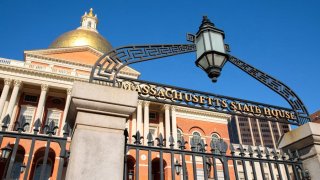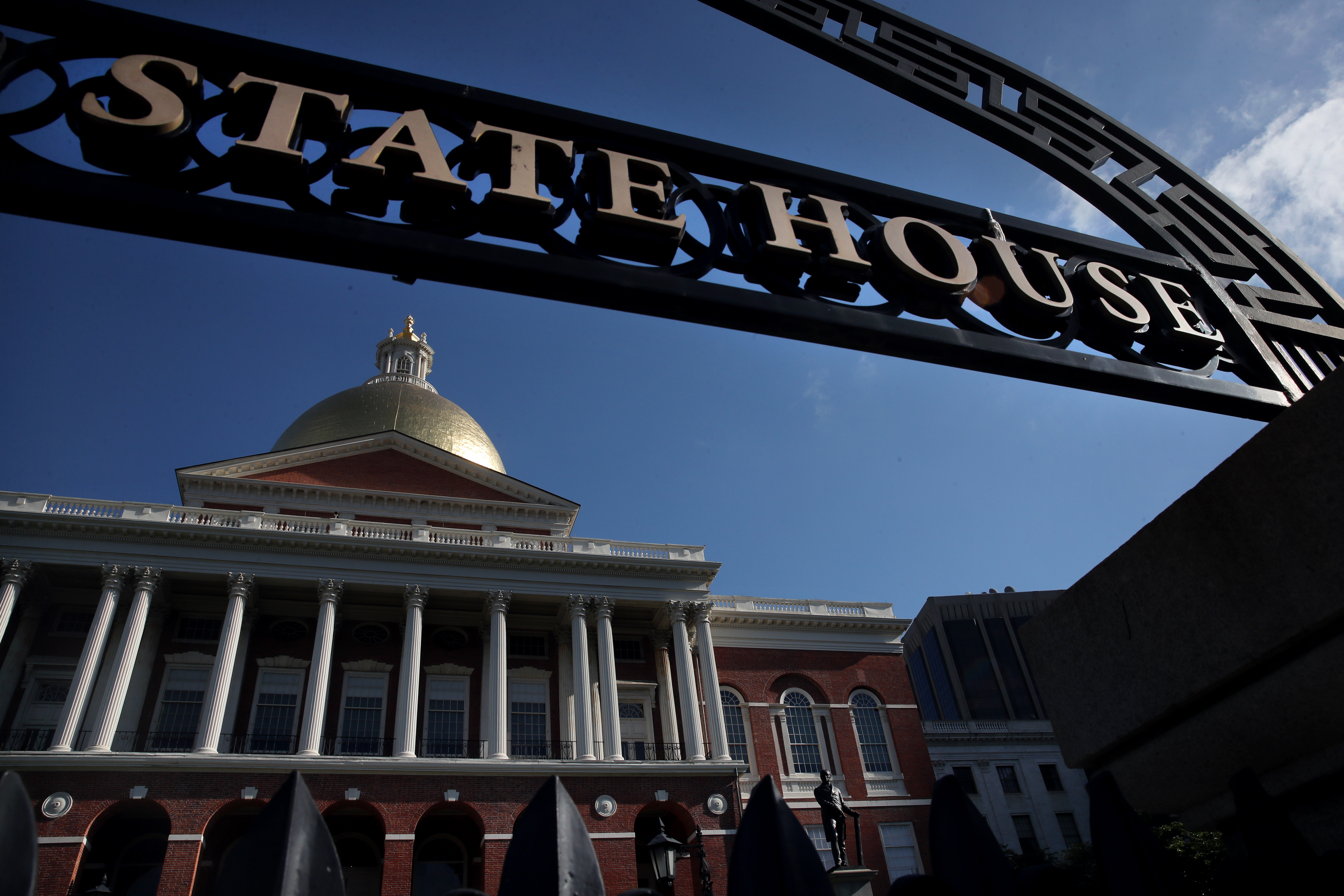
The Massachusetts House gaveled out of a rare Friday session with plans to return for an even more rare Saturday session after Republicans again pushed off consideration of a $3.1 billion closeout budget bill packed with money for the state's emergency shelter system, public worker raises and special education.
Second Assistant Minority Leader Paul Frost reprised his role from Thursday's session, doubting the presence of a quorum as Democrats prepared to bring up the spending bill for a floor vote. There were 19 representatives in the chamber -- 12 Democrats and seven Republicans -- at the abrupt end to Friday's informal session, or just under 12% of the branch's membership.
The Senate hung around for nearly an hour Friday waiting for potential House action on the compromise fiscal year closeout bill, but after Republicans in that chamber again stalled consideration, senators gaveled out for the weekend. The Senate -- which cannot take up the bill until it clears the House -- does not plan to hold its next session until Monday.
The Massachusetts Teaches Association blasted the House and Senate for adjourning without passing a supplemental budget on Friday. The legislation funds raises for tens of thousands of public workers who have already ratified new collective bargaining agreements they struck with the Healey administration.
"The Legislature’s inability to pass a budget that addresses the plight of families in need of shelter, as well as funds long-ratified contracts for state workers, is a stunning failure," association President Max Page and Vice President Deb McCarthy said in a joint statement. "Yesterday, when the conference committee reached agreement on the content of a supplemental budget, we were hopeful that contracts would finally be funded. But today, the Legislature adjourned without finalizing a budget and sending it to Governor Maura Healey for her signature. This is unacceptable."
House and Senate Democrats announced Thursday that they had reached a deal on a supplemental budget, but they could not get the overdue legislation across the finish line in the face of frustrated Republicans.
Democrats were unable to finish work on the supplemental budget before formal sessions ended on Nov. 15, meaning they had to come up with a bill that received unanimous support in informal sessions.



